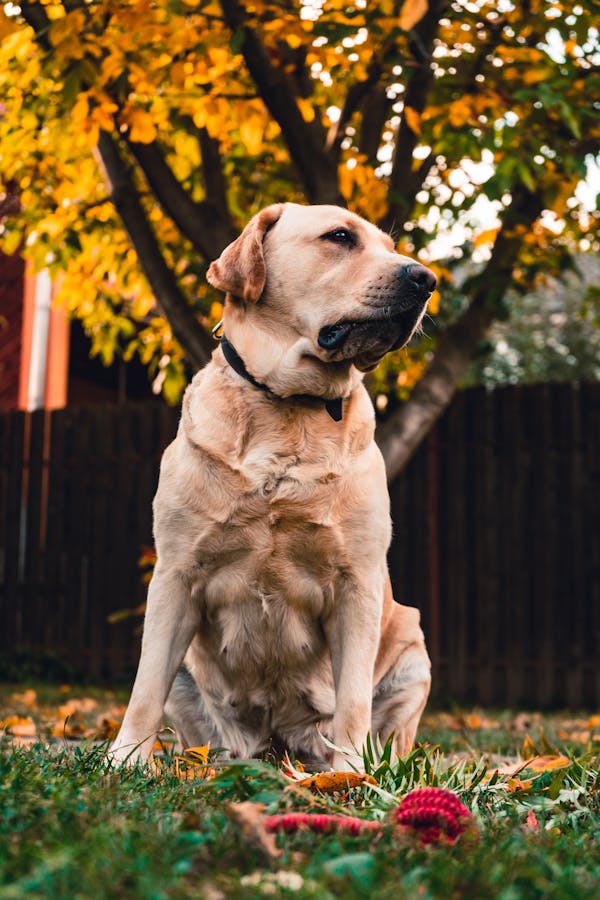Are you considering adding a dog friend to your life for emotional support? Choosing the best dog breeds for emotional support animals can make a significant difference in your well-being.
These dogs provide companionship, reduce anxiety, and offer comfort during challenging times. In this article, we’ll explore the qualities that make certain breeds ideal for emotional support roles and highlight some of the best options available.
When searching for the right breed, it’s essential to understand the characteristics that contribute to a dog’s effectiveness as an emotional support animal (ESA).
You want a dog that is friendly, calm, and sensitive to your emotions. Size and energy level also play a crucial role—whether you live in a small apartment or have a spacious home, the right breed should fit seamlessly into your lifestyle.
Let’s explore the best dog breeds for emotional support animals and discover which pet companions can enhance your emotional well-being!
Characteristics of Ideal Emotional Support Dogs
When it comes to finding the best dog breeds for emotional support animals, understanding their essential characteristics is key.
You want a dog that not only brings joy but also provides the emotional comfort you seek. Here are some traits to look for:
1. Temperament: First and foremost, you need a dog with a calm and friendly demeanor. Dogs that are naturally affectionate and gentle can make a world of difference during tough times. Look for breeds that thrive on companionship and are eager to be by your side.
2. Size Considerations: Whether you prefer a small lap dog or a larger breed, the size of your ESA can influence your choice. Small breeds are often easier to manage in apartments, while larger dogs can offer a comforting presence. Think about your living space and lifestyle when choosing.
3. Trainability: An ideal emotional support dog should be eager to learn and responsive to commands. A dog that is easy to train will not only follow your cues but also be more adaptable to various situations, enhancing its ability to provide comfort.
4. Energy Level: Assess your own energy levels when selecting a breed. If you lead a more active lifestyle, you might enjoy a dog that loves to play and go for walks. Conversely, if you prefer a laid-back atmosphere, look for breeds that are content to lounge and relax with you.
5. Sensitivity to Human Emotions: Perhaps one of the most crucial traits is emotional sensitivity. The best dog breeds for emotional support animals can pick up on your feelings and respond accordingly. These dogs often seem to know when you need a cuddle or just someone to lean on.
I hope knowing these characteristics you will be able to find a dog that will not only meet your emotional needs but also become a cherished member of your family.
Ready to explore specific breeds that fit this description? Let’s dive into the top contenders for the best dog breeds for emotional support animals!
Top Dog Breeds for Emotional Support
Now that you understand what makes an ideal emotional support dog, let’s explore some of the best dog breeds for emotional support animals.
Each of these breeds offers unique qualities that can significantly enhance your emotional well-being.
1. Labrador Retriever
Labrador Retrievers are known for their friendly and outgoing nature. These dogs are not only incredibly affectionate but also highly trainable, making them a fantastic choice for emotional support.
Their playful energy can uplift your spirits, and they are equally content to snuggle on the couch.

2. Golden Retriever
If you’re looking for a loyal companion, Golden Retrievers are a top pick. They possess a gentle temperament and are very attuned to their owners’ emotions.
Their warm and loving nature makes them perfect for providing comfort during tough times, and they thrive on human interaction.

3. Poodle (Standard, Miniature, Toy)
Poodles are not only intelligent but also come in various sizes to fit your lifestyle. Whether you prefer a Standard, Miniature, or Toy Poodle, these dogs are known for their hypoallergenic coats, making them suitable for allergy sufferers.
Their trainability and playful demeanor make them excellent emotional support animals.

4. Cavalier King Charles Spaniel
Cavalier King Charles Spaniels are affectionate lap dogs that love to cuddle. Their gentle nature and adaptability make them perfect companions for anyone seeking emotional support.
They thrive on human interaction and are known for their ability to sense when you need comfort.

5. Bichon Frise
If you want a cheerful and playful companion, consider the Bichon Frise. This small breed is not only adorable but also has a low-shedding coat, making it great for those with allergies.
Their friendly disposition and love for cuddling can brighten your day and ease feelings of anxiety.

6. German Shepherd
German Shepherds are not just protective but also deeply loyal. They are highly trainable and can offer a watchful presence while providing emotional support.
Their intelligence and dedication make them excellent companions for those needing both security and comfort.

7. Shih Tzu
Shih Tzus are small, affectionate dogs that thrive in close quarters, making them perfect for apartment living.
Their calm demeanor and love for companionship make them ideal emotional support animals, especially for those who appreciate a quiet, loving presence.

8. Beagle
Beagles are friendly and curious, making them great family companions. Their social nature fosters companionship, and they often form strong bonds with their owners.
A Beagle’s playful spirit can help lift your mood and provide emotional comfort.

Each breed that we discussed above, has unique qualities that make them excellent candidates as emotional support animals.
By considering these options, you can find the perfect furry friend to accompany you on your journey toward emotional well-being.
Let’s move on to some important factors to consider when choosing your ESA!
Factors to Consider When Choosing an ESA
Choosing the right emotional support animal is a personal decision, and there are several factors to keep in mind to ensure you find the best dog breeds for emotional support animals that fit your lifestyle and needs.
Here’s what to consider:
1. Lifestyle Compatibility
Think about your daily routine. Are you active and on the go, or do you prefer a more relaxed pace? The best dog breeds for emotional support animals should align with your lifestyle.
If you enjoy outdoor activities, a playful breed like a Labrador or Golden Retriever may be ideal. For those with a quieter lifestyle, a Shih Tzu or Cavalier King Charles Spaniel could be a better match.
2. Living Space
Your living situation plays a significant role in your choice. If you live in a small apartment, consider smaller breeds like the Bichon Frise or Toy Poodle.
If you have a yard and more space, larger breeds like German Shepherds or Labradors can thrive in that environment. Always choose a breed that can comfortably adapt to your living space.
3. Allergies and Grooming Needs
If you or someone in your household has allergies, it’s crucial to consider hypoallergenic breeds. Poodles and Bichon Frises are great options as they shed less and produce fewer allergens.
Additionally, consider the grooming needs of each breed. Some require regular grooming and maintenance, while others have low grooming demands.
4. Long-Term Commitment
owning a dog is a long-term commitment, often lasting 10 to 15 years or more. Make sure you’re ready for the responsibilities that come with pet ownership, including training, socialization, and healthcare.
The best dog breeds for emotional support animals can require time and effort, but the emotional rewards are well worth it.
5. Legal Considerations
familiarize yourself with the legal aspects of having an emotional support animal. While ESAs don’t require formal training like service dogs, some housing and airline regulations might still apply.
Understanding these laws can help you navigate any challenges that may arise.
By carefully considering these factors, you can make an informed decision when selecting your emotional support animal.
This thoughtful approach will help ensure that you and your new furry friend will share a strong, supportive bond for years to come.
Ready to take the next step? Let’s talk about training and certification for your emotional support dog!
Training and Certification
Once you’ve chosen one of the best dog breeds for emotional support animals, the next step is training and possibly certification.
While emotional support dogs don’t require the same level of training as service dogs, basic training is essential for a well-behaved companion.
Here’s what you need to know about training your ESA:
1. Basic Obedience Training
Start with basic commands like sit, stay, come, and down. These commands form the foundation of a well-trained dog and ensure your emotional support animal can follow your lead.
Positive reinforcement methods, such as treats and praise, work wonders in encouraging good behavior.
2. Socialization
Socialization is crucial for any dog, especially for those who will provide emotional support. Expose your dog to various environments, people, and other animals to help them become well-adjusted and comfortable in different situations.
This exposure will help them feel more at ease when they’re by your side.
3. Specialized Training
If your dog shows particular sensitivity to your emotions, consider specialized training focused on emotional support.
This can involve teaching them to respond to your stress signals, like sitting close or providing comfort during anxious moments. Training them to recognize when you need support can strengthen your bond.
4. Certification
While certification is not required for emotional support animals, it can be beneficial. Some landlords or airlines may ask for documentation to confirm your dog’s role as an ESA.
Organizations offer various certification programs that provide official paperwork. Research reputable options to ensure your ESA has the necessary credentials.
5. Resources for Training
Look for local training classes or online resources to help guide you through the training process. Professional trainers specializing in emotional support and therapy dogs can provide invaluable assistance.
Moreover, consider using training apps or videos for at-home practice.
By investing time in training and potentially seeking certification, you’ll enhance your emotional support dog’s effectiveness.
The better trained your dog is, the more confident you’ll feel knowing you have a reliable companion by your side.
Ready to explore the benefits of having an emotional support animal? Let’s wrap up with a summary of why these dogs are so impactful!
Conclusion
As we wrap up our exploration of the best dog breeds for emotional support animals, it’s clear that the right furry companion can make a profound difference in your life.
These dogs are not just pets; they become integral parts of our emotional well-being, offering comfort, companionship, and unconditional love.
Choosing a breed that aligns with your lifestyle, living space, and personal needs is essential. Whether you prefer the playful nature of a Labrador Retriever or the gentle cuddles of a Cavalier King Charles Spaniel, each breed has unique qualities that can provide the emotional support you seek.
Remember, investing time in training and socializing your dog is key to building a strong bond and ensuring they can effectively support you.
If you’re ready to welcome an emotional support animal into your life, take the time to research and find the perfect match.
This journey can lead to a rewarding relationship that enhances your emotional health and happiness.
So, consider adopting or fostering one of the best dog breeds for emotional support animals, and let the healing begin!
Thank you for joining me on this journey. Your perfect companion is out there waiting for you!
Related post: Best Dog Breeds for Depression and Anxiety
FAQs
1. What qualifies a dog as an emotional support animal?
An emotional support animal (ESA) provides comfort and support to individuals with emotional or psychological conditions. Unlike service dogs, ESAs do not require specific training; their main role is to provide companionship and alleviate symptoms of anxiety, depression, or stress.
2. Are all dog breeds suitable as emotional support animals?
Not all breeds are ideal for the role of an emotional support animal. The best dog breeds for emotional support animals tend to be those with calm temperaments, affectionate nature, and good trainability. Breeds like Labradors, Golden Retrievers, and Poodles often excel in this role.
3. Do emotional support dogs need to be registered or certified?
While emotional support dogs do not require formal certification, some landlords and airlines may request documentation to verify their status as an ESA. You can obtain a letter from a licensed mental health professional to help establish this.
4. Can I train my dog to be an emotional support animal?
Yes, you can train your dog to be an emotional support animal. Basic obedience training, socialization, and even specialized training to respond to your emotional needs can enhance their ability to support you.
5. What are the legal rights of emotional support animals?
Emotional support animals have certain legal protections under the Fair Housing Act, allowing them to live with their owners in housing that may otherwise have restrictions on pets. However, they do not have the same access rights as service dogs in public spaces.
6. How do I choose the right emotional support dog for my needs?
Consider your lifestyle, living situation, and any allergies. Evaluate the energy level, temperament, and size of potential breeds. Ultimately, the best dog breeds for emotional support animals will be those that fit well with your personal circumstances and emotional needs.
7. How can an emotional support animal benefit my mental health?
Emotional support animals can provide companionship, reduce feelings of loneliness, and help alleviate anxiety and depression. Their presence can create a calming effect and promote a sense of security, contributing to improved emotional well-being.

Pingback: The Hardest Working Dog Breeds: Champions of Labor - Tech Promot